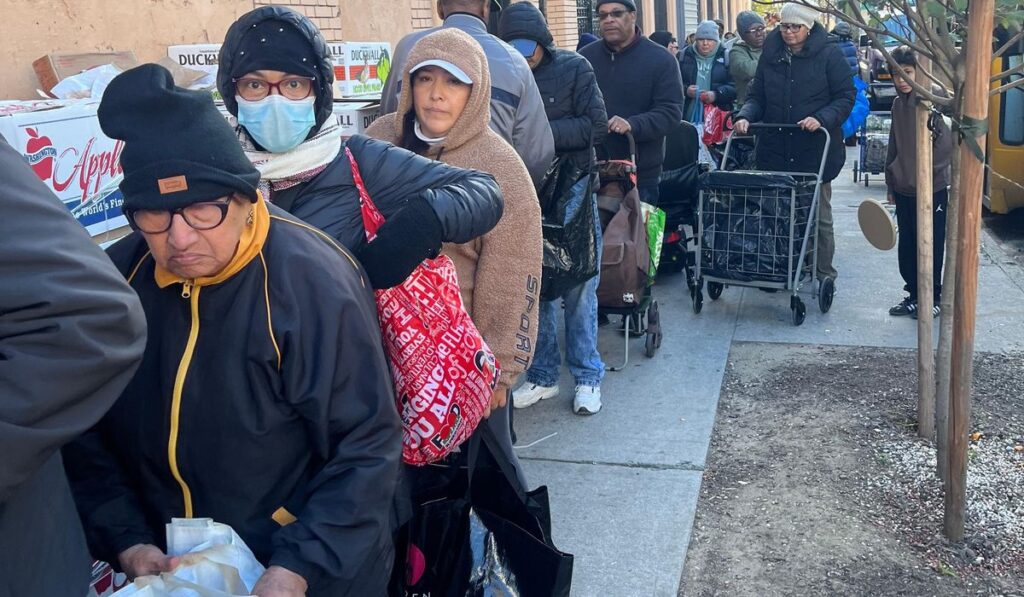Across the country, long lines at food pantries and drive-through giveaways have become a visible sign that policy choices at the federal level have real consequences for everyday families. This piece looks at why those lines appeared, how communities and charities have responded, what critics on the right see as the deeper problems, and what practical changes could reduce dependency while still protecting people in need.
People across the country formed long lines for free meals and groceries at food pantries and drive-through giveaways Saturday, after monthly benefits through the federal Supplemental Nutrition Assist. Those scenes are real, emotional, and headline-grabbing, but they are also the predictable fallout of policy that shifts people onto automatic supports without parallel reforms that promote work and self-reliance. It is important to describe the immediate need on the ground while also looking at the structural issues behind it.
Local charities, churches, and food banks have been the first to stretch themselves to meet demand, showing the flexibility and compassion of civil society. Volunteers have worked long hours to feed neighbors, and many faith-based groups report record turnout at distribution events. These efforts prove two things: government is not the only provider of charity, and local organizations often respond faster and more efficiently than federal programs.
From a Republican viewpoint, the problem is not compassion but the design of the safety net. Programs that remove work expectations and extend benefits indefinitely risk creating dependency rather than a path back to stable employment. Smart reform should preserve help for the genuinely needy while restoring incentives and supports that get people into jobs or training programs that lead to independence.
Practical reforms include tightening eligibility to focus resources on those in true need, expanding time-limited supports tied to workforce participation, and increasing investment in job training and child care to remove barriers to employment. That mix respects taxpayers by targeting assistance and respects recipients by offering a route out of long-term dependency. It is possible to be both fiscally responsible and decently humane at the same time.
State and local leaders can act immediately without waiting for big federal legislation, and many are already doing so by piloting workplace-linked aid and scaling community-based food programs. Those on the ground know their economies and labor markets best, so devolving flexibility can allow faster, better-tailored responses. Encouraging innovation at the state level also creates models that Congress can study and replicate where they succeed.
Transparency and accountability belong at the center of any reform conversation. Taxpayers deserve to see how money is spent and to know that programs are reducing poverty rather than perpetuating it. Strong auditing, clearer outcome measures, and punishment for fraud improve public confidence and make programs more effective for the people who actually need them.
There is no one-size-fits-all fix, but a sensible approach combines community charity, state experimentation, and federal priority-setting that emphasizes work, training, and accountability. That approach keeps the safety net for emergencies while promoting opportunities that let people stand on their own. As the lines at food banks make painfully obvious, policy choices matter; conservatives want solutions that restore dignity, encourage independence, and ensure scarce resources are used wisely.



